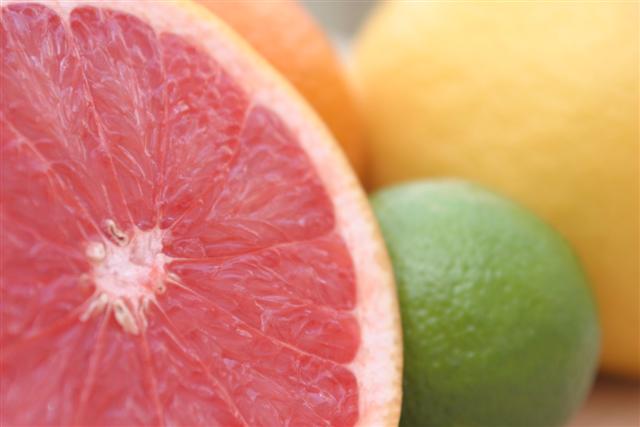- Home
- About Us

Citrus forms an important part of our product range
Read moreAbout Us
- How We Work

We have own roses under cultivation in Bulgaria
Read moreHow We Work
- News
- Products
- Services

We ship to more than 50 countries worldwide
Read moreServices
- Contact Us
- Home
- Products
Products
We are committed to providing only the highest quality of flavour and fragrance ingredients on demand to our customers worldwide. Our diverse product list offers a selection of over 250 natural and synthetic aroma chemicals, coolants, essential oils and extracts. Even if you cannot find a specific product you are looking for, do contact us as we may still be able to help.
Filter products by:
Clear allKeyword or product code
Lime Oil Distilled West Indian Type Citrus aurantifolia (Christman) Swingle
The screw-pressing of the fruit produces a juice-essential oil emulsion. After the juice is largely separated from the settled oil layer, still steam-distillation of the remaining juice-oil emulsion takes place. This results in changes to the essential oil that are similar to the changes induced by thermal treatment in highly acidic conditions.
EU Natural | DMA Code: 800366 | CAS Number: 90063-52-8 | FEMA Number: 2632
Lime Oil Distilled West Indian Type 5-Fold Citrus aurantifolia (Christman) Swingle
The high terpene content in citrus oils can limit their application in water-based food and beverage consumer products. Partial or full deterpenation of the oil results in improved solubility and varying odour profiles depending on both the method and extent to which it is carried out.
EU Natural | DMA Code: 800368 | CAS Number: 90063-52-8 | FEMA Number: 2632
Lime Oil Expressed Persian Citrus latifolia Tanaka
Persian limes are the larger of the two commercially grown varieties. They grow on almost thornless trees and are seedless and similar in size and shape to lemons. Although there is a small production in Florida, the bulk of Persian limes are grown in Mexico and Brazil, where they are called Tahiti limes. The oil is usually expressed using FMC type extractors, although in Mexico rasping equipment is not uncommon.
EU Natural | DMA Code: 800370 | CAS Number: 90063-52-8 | FEMA Number: 2631
Lime Oil Expressed West Indian Type 4-Fold Citrus latifolia Tanaka
The high terpene content in citrus oils can limit their application in water-based food and beverage consumer products. Partial or full deterpenation of the oil results in improved solubility and varying odour profiles depending on both the method and extent to which it is carried out.
EU Natural | DMA Code: 800372 | CAS Number: 90063-52-8 | FEMA Number: 2631
Litsea Cubeba Oil Litsea cubeba
The harvesting season of the berries of litsea cubeba trees in China takes place in a very short period of time (three weeks during August-September). The trees are grown in mountainous regions and poor weather conditions can sometimes greatly affect the harvest. The oil is a major source of citral with a content of around 85%.
EU Natural | DMA Code: 800378 | CAS Number: 90063-59-5 | FEMA Number: 3846
Mandarin Oil Italian Type Citrus reticulata Blanco
In contrast with tangerine, mandarin oil has an amine-type topnote. Although sweet, its odour is not as fresh or refreshing as other citrus oils. Its application in flavourings is mainly as a modifier for citrus beverage compositions, such as orange and bitter orange.
EU Natural | DMA Code: 800380 | CAS Number: 84929-38-4 | FEMA Number: 2657
Mandarin Petitgrain Terpeneless Citrus deliciosa Ten., methyl N-methylanthranilate, dimethyl anthranilate
The starting material, mandarin petitgrain oil, is steam distilled from the fresh leaves and twigs. Sometimes whole, small, raw fruit or peel of raw fruit is added. Petitgrain oils with markedly varying levels of methyl N-methylanthranilate have been reported in the literature. The petitgrain oil is fractionated under vacuum to min. 98% dimethyl anthranilate and is most commonly used in natural grape flavours. Unlike methyl anthranilate, it will not form Schiff bases with aldehydes and is less likely to discolour.
EU Natural | DMA Code: 800383 | CAS Number: 85-91-6 | FEMA Number: 2854
Mimosa Absolute 20% in DPG Acacia decurrens Willd.var.dealbata
The first step in the production of mimosa absolute involves the solvent extraction of a waxy concrete from the flowers. The waxes are then removed to produce the absolute. Southern France and Italy are the traditional regions of production.
EU Natural | DMA Code: 800846 | CAS Number: 93685-96-2 | FEMA Number: 2755
Nutmeg Oil Myristica fragrans Houtt.
Two main origin oils are traded; Sri Lanka and Indonesia. Sri Lankan nutmeg oil is lower in volume and is typically used for fragrance applications. Indonesian nutmeg oil is used mainly for flavour applications.
EU Natural | DMA Code: 800652 | CAS Number: 84082-68-8 | FEMA Number: 2793
Onion Oil Allium cepa L.
From Egypt or Italy, the yield of distillation of onions is very low, hence the oil commands a high price for a genuine pure and natural quality.
EU Natural | DMA Code: 800922 | CAS Number: 8054-39-5 | FEMA Number: 2817
Onion Oil Mexican Type (Synthetic) n/a
In view of the high price of the pure and natural essential oil of onion, this synthetic quality provides a very good alternative. This product complies with the Food Chemical Codex and tends to have a fairly stable price throughout the year.
Synthetic | DMA Code: 800859 | CAS Number: 629-19-6 | FEMA Number: 3228
Orange Essence Oil Citrus sinensis (L.) Osbeck
Essences can be collected from fresh juice in a number of ways including partial distillation prior to juice evaporation or by condensation of volatiles from the early stages of evaporation. De-oiling juice is important as the acid pH causes chemical degradation of the terpenes, which leads to off-flavours. Two phases, namely aqueous and oil, are obtained during recovery. Essence oil phase is generally used in the beverage and fragrance industry. The composition of essence oils is similar to that of peel oils but the essence oils usually contain a larger amount of aliphatic ethyl esters. Thus, their aroma resembles that of a particular juice more than that of peel oils.
EU Natural | DMA Code: 800392 | CAS Number: 8028-48-6 | FEMA Number: 2825
Orange Essence Oil 10-Fold Citrus sinensis (L.) Osbeck
Essences can be collected from fresh juice in a number of ways, including partial distillation prior to juice evaporation or by condensation of volatiles from the early stages of evaporation. De-oiling juice is important as the acid pH causes chemical degradation of the terpenes, which leads to off-flavours. Two phases, namely aqueous and oil, are obtained during recovery. Essence oil phase is generally used in the beverage and fragrance industry. The composition of essence oils is similar to that of peel oils but the essence oils usually contain a larger amount of aliphatic ethyl esters. Thus, their aroma resembles that of a particular juice more than that of peel oils.
EU Natural | DMA Code: 800393 | CAS Number: 8028-48-6 | FEMA Number: n/a
Orange Essence Oil 20-Fold Top Notes Citrus sinensis (L.) Osbeck
The high terpene content in citrus oils can limit their application in water-based food and beverage consumer products. Partial or full deterpenation of the oil results in improved solubility and varying odour profiles depending on both the method and extent to which it is carried out.
EU Natural | DMA Code: 800394 | CAS Number: 8028-48-6 | FEMA Number: n/a
Orange Juice Carbonyls Citrus sinensis (L.) Osbeck
Orange juice carbonyls are natural mixtures of aldehydes, ketones, alcohols and sesquiterpenes produced from orange essence oil.
EU Natural | DMA Code: 800398 | CAS Number: 8028-48-6 | FEMA Number: n/a
Orange Oil Brazilian Type Citrus sinensis (L.) Osbeck
The cold pressed orange oil is a by-product of orange juice production and represents approximately 5% of the turnover of the large orange juice producers in Brazil and Florida. The oil is expressed from the skin as the orange fruit is squashed to produce the juice. The oil is then processed further and the waxes removed through chilling and centrifugation.
EU Natural | DMA Code: 800387 | CAS Number: 8028-48-6 | FEMA Number: 2825
Orange Oil Brazilian Type 10-Fold Citrus sinensis (L.) Osbeck
The high terpene content in citrus oils can limit their application in water-based food and beverage consumer products. Partial or full deterpenation of the oil results in improved solubility and varying odour profiles depending on both the method and extent to which it is carried out.
EU Natural | DMA Code: 800389 | CAS Number: 8028-48-6 | FEMA Number: 2826
Orange Oil Brazilian Type 5-Fold Citrus sinensis (L.) Osbeck
The high terpene content in citrus oils can limit their application in water-based food and beverage consumer products. Partial or full deterpenation of the oil results in improved solubility and varying odour profiles depending on both the method and extent to which it is carried out.
EU Natural | DMA Code: 800388 | CAS Number: 8028-48-6 | FEMA Number: 2825
Orange Oil California Type Citrus sinensis (L.) Osbeck
Washington Navel is the second most important orange variety in the world after Valencia. It is the leading variety in Brazil, California, Paraguay, South Africa, Australia and Japan. The oil is expressed from the skin as the orange fruit is squashed to collect the juice. The oil is further processed and the waxes removed by chilling and centrifugation.
EU Natural | DMA Code: 800390 | CAS Number: 8028-48-6 | FEMA Number: 2824
Orange Oil California Type 10-Fold Citrus sinensis (L.) Osbeck
The high terpene content in citrus oils can limit their application in water-based food and beverage consumer products. Partial or full deterpenation of the oil results in improved solubility and varying odour profiles depending on both the method and extent to which it is carried out.
EU Natural | DMA Code: 800539 | CAS Number: 8028-48-6 | FEMA Number: 2826
Email Sign up
You have been successfully signed up to the De Monchy newsletter
What you'll receive in every monthly De Monchy Newsletter
- A round up of the latest news from the flavour & fragrance industry.
- Insight into the effects of currency fluctuations, political unrest and severe weather on a range of flavour and fragrance raw materials.
- Our opinion on likely market movements including buy recommendations and suggestions of what to watch.

